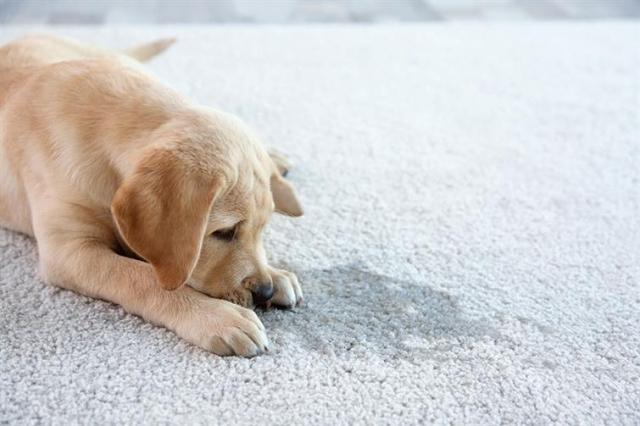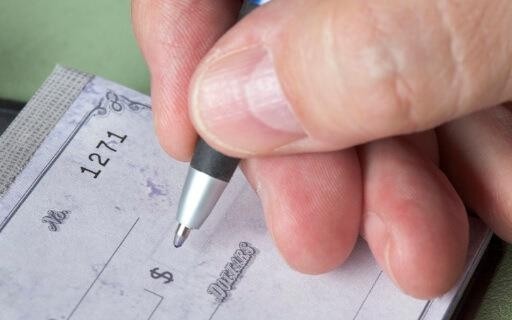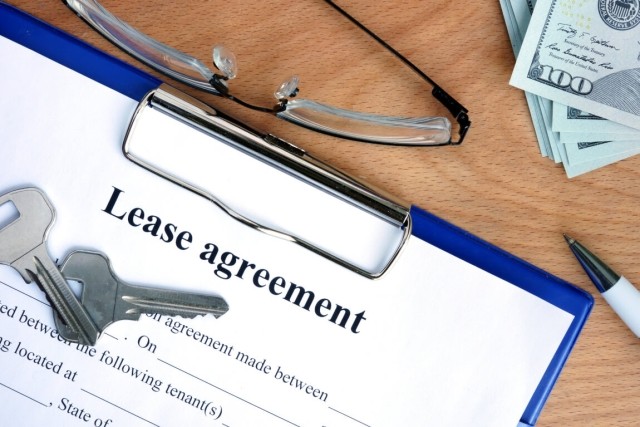It’s a dreaded phrase, indeed: pet damage. (Cue the shocked gasps.) We all love our furry friends so dearly, but we have to face the facts. Sometimes, pets can damage your apartment. Whether it’s accidents on the carpet, clawed door frames, scratched floors, or chewed up blinds, apartment damage is a common occurrence. We love our loyal, four-legged friends just the same, and though some accidents may be out of our control, some are easily preventable; so it’s our duty to keep our pets happy and healthy in our apartments – and hopefully avoid some damage along the way!
What is your apartment's pet policy?
When you signed your lease, did you read it thoroughly? Especially the part about the apartment community’s pet policy? If you skimmed over it before you moved in with your pet, don’t worry – just read a copy of your lease ASAP to figure out exactly what kind of pet policy you’re dealing with here. When I say pet policy, I mean any rules, restrictions, and clauses that pertain to the pets living in the community. For instance, in your pet policy, it may say that each tenant with a pet must pay a pet deposit and monthly pet rent – you’ll know this already, however, because you would have paid the pet deposit or pet fee before you moved in.
The policy could also enlighten you as to what you are responsible for paying if anything were to happen to the apartment, including damages done by your pet. To avoid any confusion between tenant and property manager, read your lease thoroughly and know what you are responsible for ahead of time!
What is considered pet damage?
Our sweet, innocent fluffs did what? Damaged the apartment? No way, no how! Okay, enough with the act. Accidents happen, but the pet isn’t really at fault here (financially) – that would be you, my dear renter. Because you’re likely going to have to pay for the damages (if they affect the quality or livability of the apartment after you’ve moved out), it’s best to know what is considered as pet damage according to your lease. A few things that may be considered to be pet damage are:
- Pet stains on the carpet
- Scratched hardwood floors from pet claws
- Scratched doorframes, moldings, walls, or doors by pet claws
- Chewed blinds or strings
- Chewed carpet or baseboards
- Abundance of pet hair
- A lingering, unpleasant pet odor (usually from the carpet)
If your lease doesn’t go into detail about what exactly is considered to be pet damage, just use this list as your go-to, and as always, use your best judgement. If something is done to the apartment that wasn’t that way when you moved in, then you’re likely liable for that damage. So don’t be shocked when you are held responsible for the damages at the end your lease, renters!
What covers pet damage?
There are many myths floating in the rental universe regarding different deposits or insurances that can cover pet damage in your apartment. Let’s get down to the truth of these various theories and settle the argument, shall we? What covers pet damage in your apartment and what doesn’t?
Security Deposit
Your security deposit is going to be refundable (meaning you’ll get that money back at the end of your lease), unless it’s used by the property manager or landlord to cover the costs of repairing damages that the tenant (you) made during their lease. Is pet damage included? The answer is: yes. Your security deposit is often the first thing that will pay for both you and your pet’s damages, whether it be replacing the carpet, buying new blinds, or filling in the scratches on the doors. But if the damages exceed the security deposit, you’ll be sent a bill for the remainder of the repairs. However, this should only happen in extreme circumstances. If you hope to get your security deposit back at the end of your lease, avoid damages of any kind at all costs.
Renters Insurance
Renters insurance is a great thing – and necessary if you’re going to be a renter! The benefits of renters insurance are plain as day, but what about pet coverage? Does renters insurance cover your pets and any potential damage they may do to the unit? The answer (though frustrating) is: not typically. A renters insurance policy is there to protect you (and those on the policy) and your stuff. Your personal liability coverage, which includes pet liability coverage, will often jump in if your pet does any damage to another’s property, such as dig up your neighbor’s fence, and it may also come in handy if your dog happens to bite someone. However, this does not cover pet damages to your personal belongings, such as your couch, or to the interior of the unit, such as your carpet. Because you chose to have a pet, renters insurance sees it as your responsibility to deal with the damages.
Pet Deposits, Pet Fees, and Pet Rent
Let’s start with the bad news first: pet fees and pet rent do not cover pet damages. A pet fee is a one-time fee you will pay before you move in that is non-refundable. It’s the fee an apartment community charges you for having a pet in your unit. Pet rent is a monthly amount paid along with your rent (usually $10-$25) that is meant to cover the costs of pet-friendly amenities around the apartment community provided by management, such as pet waste bags, a dog park, walking trail, pet spa, and dog treats in the leasing office. But what can possibly cover your pet’s damages out of these three payments? Your pet deposit! Because a pet deposit is meant to be refundable (while a fee is not), part of your pet deposit should be able to be put towards damages in your apartment. However, this entirely depends on what is stated in your lease agreement. So be sure to read your pet policy thoroughly!
How to prevent future pet damages
We all know your feline Fluffy is probably going to sharpen her claws on the door frame from time-to-time, and your new pup Max is going to have an accident or two on the carpet while he’s being potty-trained. But some accidents are definitely preventable. For instance, if you fail to take your dog out a reasonable amount of times during the day, and he/she has an accident in your apartment – that’s your fault, not the dog’s!
Be your best pet-owning self and make sure you are giving your best care and attention to your pets. This goes for cleaning out the litter box, regular baths (for dogs), keeping your pets’ claws trimmed and healthy, routinely giving your pets food and water, taking your dogs to the bathroom, providing plenty of toys and playtime, and most of all – attention! If you do these things, you’ll avoid the worst of pet damage, such as ruined carpet and lingering odors. An accident or two along the way is no big deal – it’s their home too, right? So let’s treat our pets well, read our leases thoroughly, and take responsibility for pet damages in our apartments, shall we? (And hope our pet deposit or security deposit kicks in if/when the time comes.)






